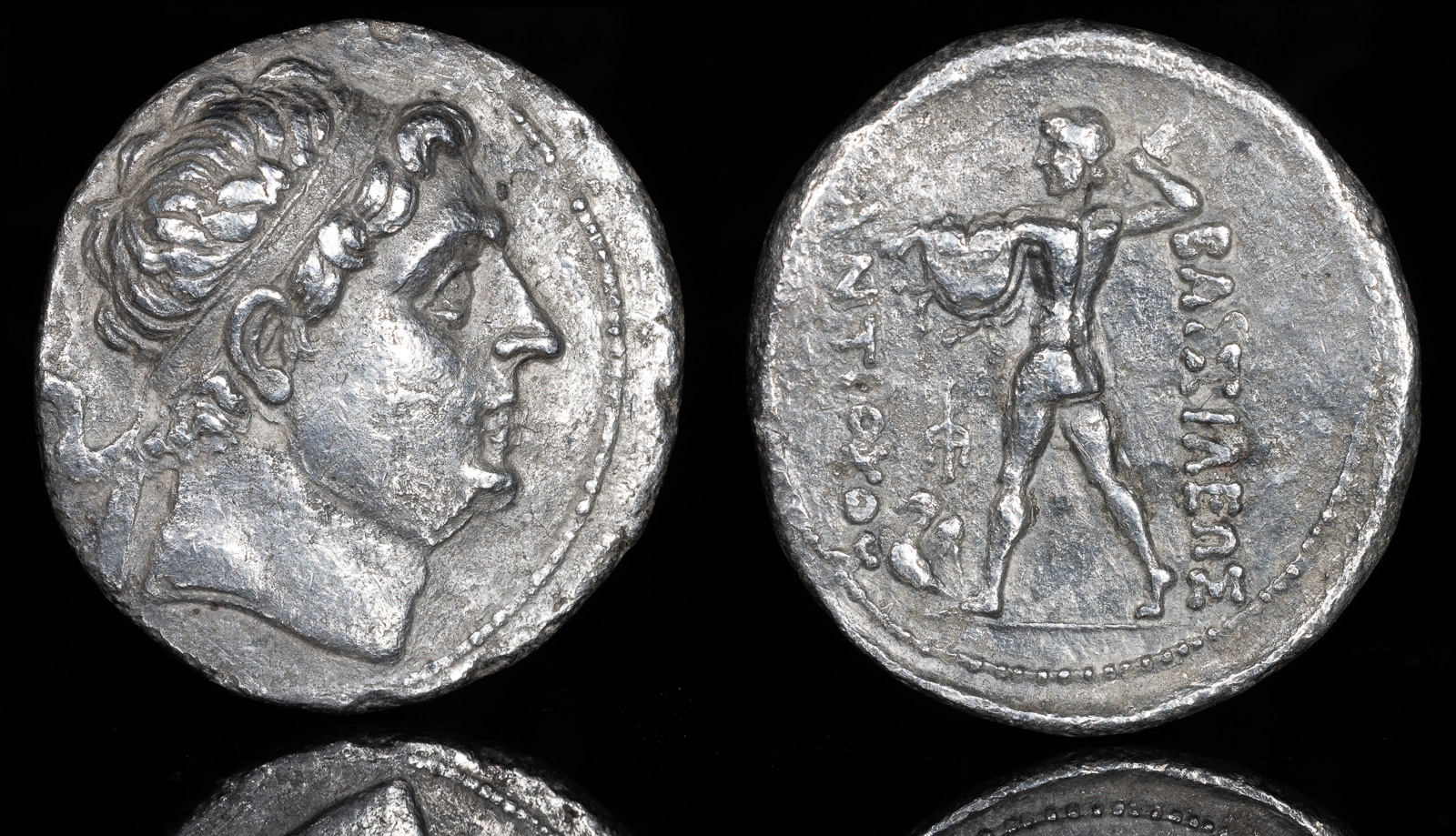
Greco-Baktrian Kingdom, Diodotos I Soter
AR Tetradrachm circa 255-235 BCE
15.32g, 29mm, 6h
In the name of Antiochos II of the Seleukid Empire. Mint A (near Aï Khanoum), Diademed head to right / Zeus Bremetes advancing to left, brandishing aegis and thunderbolt; ΒΑΣΙΛΕΩΣ to right, ΑΝΤΙΟΧΟΥ to left, monogram above eagle at inner left.
Kritt A6; Holt Series A, Group 6; Bopearachchi 2E; Mitchiner 64d; SNG ANS 77-8; SC 631.1a.
Ex Neil Collection
Diodotos I started the greco-baktrian kingdom, which existed in modern-day Pakistan and Afghanistan. A lot of what we know about this kingdom is through coins.
Diodotos I, the Seleukid satrap of Baktria, declares independence from the Seleukid Empire, establishing the Greco-Baktrian Kingdom.
Death of Diodotos I, probably due to natural causes. His son Diodotos II becomes king of the Greco-Baktrian Kingdom.
Euthydemos I defeats Diodotos II and becomes king of the Greco-Baktrian Kingdom.
Death of Euthydemos I of the Greco-Baktrian Kingdom. Demetrios I becomes king.
Suggested end of reign of Demetrios I of the Greco-Baktrian Kingdom. Euthydemos II becomes king.
Possible end of the reign of Euthydemos II of the Greco-Baktrian Kingdom. Eukratides I becomes king.
Menander I succeeds in expanding Greco-Baktrian control into northwestern India, reaching the peak of Greco-Baktrian influence.
Eukratides I is murdered by his son while on the way back from India. Eukratides II becomes king of the Greco-Baktrian kingdom. Heliokles I becomes king.